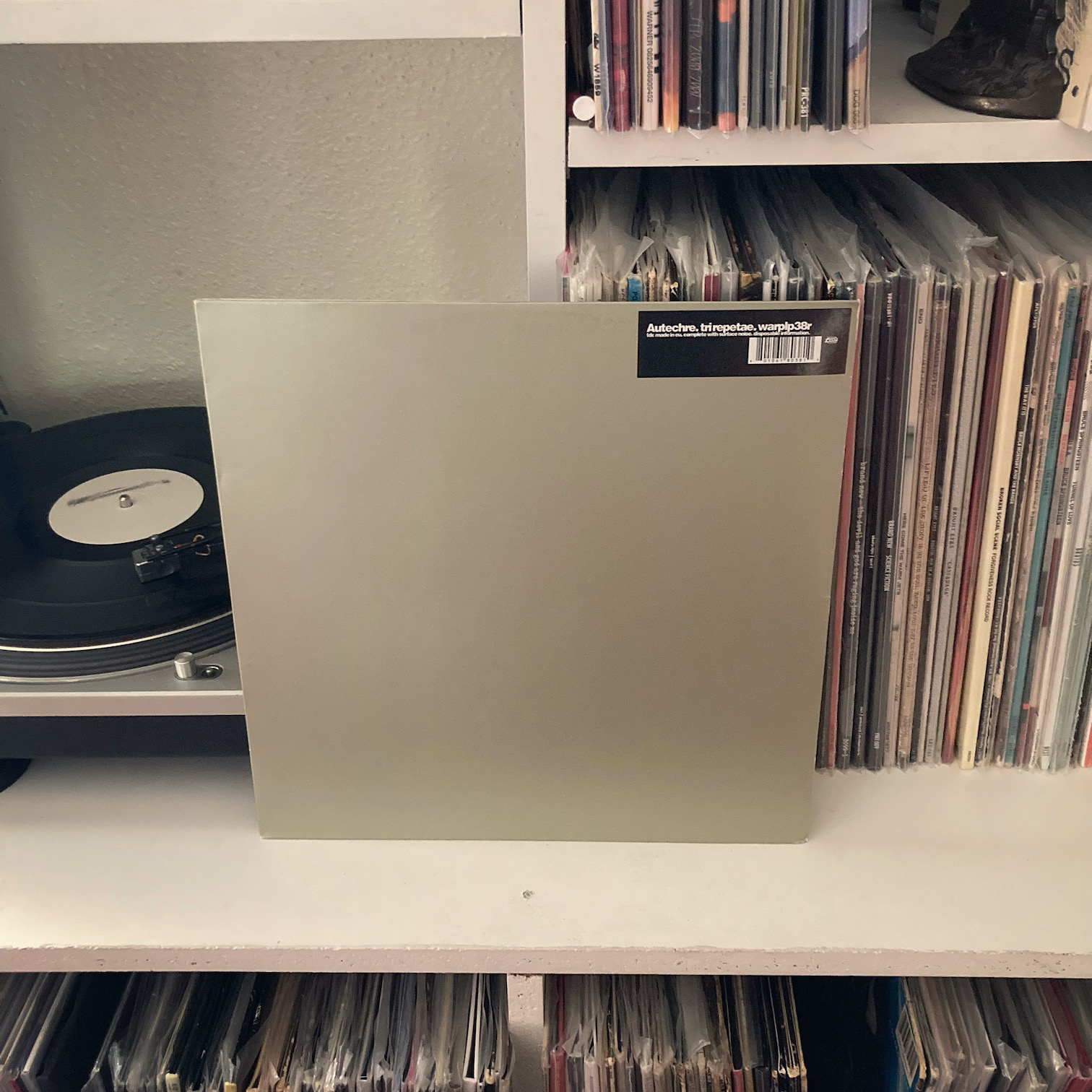 Last week, while recording an episode on experimental music for my new podcast (oh yeah, I have a podcast now), I remarked that part of what makes Radiohead great is that they take the harsh weirdness of far more inaccessible bands and mold it into pop structures. “Radiohead would be the first ones to tell you, ‘just listen to Autechre,'” I said, and then I realized two things.
Last week, while recording an episode on experimental music for my new podcast (oh yeah, I have a podcast now), I remarked that part of what makes Radiohead great is that they take the harsh weirdness of far more inaccessible bands and mold it into pop structures. “Radiohead would be the first ones to tell you, ‘just listen to Autechre,'” I said, and then I realized two things.
One: I didn’t know how to pronounce Autechre.
Two: I had never listened to them.
I promptly sought to correct that, and within half an hour of listening to their pioneering opus Tri Repetae, I ordered a copy. And now, I’m not sure which is harder to believe: that this record came out in 1995, or that humans had anything to do with its creation.
There’s nothing in the sonic atmosphere to support either idea. The sounds themselves far transcend any electronic instrument technology on the market at the time of its release, and the structures of each track feel too incorporeal for any sort of muscle tissue to have been involved in their composition.
Instead, it feels almost like the alien technology used to create this album wrote the songs themselves. The songs—if you can call them that—are long and looping (only two of the ten tracks are shorter than five minutes), and they lack any sort of urgency. Motifs arise and are repeated for most of the track, additional elements fading in and out without much concern for hooks or melody.
Instead, this record is preoccupied with matters of texture and rhythm. The textures are so prioritized that the liner notes of the vinyl edition state, “Complete with surface noise.” Bursts of glitchy noise make their best attempt at disguising themselves as drums. Whatever melody actually present are usually muffled in ambient reverb, almost hidden in the corner of the music as if leaning against the wall with its arms crossed (see “Rotar” for a particularly apt example). Occasionally, a dark bassline will elbow its way between the sharp beats for a chance at dominance, such as in “Stud,” “Clipper“, and “Eutow.”
Over a quarter-century after its release, Tri Repetae doesn’t sound any more conventional than it must have in 1995. But now, it’s almost impossible to miss its alien, ridgeless fingerprints all over the musical landscape: not just in the work other glitchy IDM acts or Radiohead, but also bands like Nine Inch Nails, Postal Service, Run the Jewels, Purity Ring, and even the dark, melancholy electro-pop of Lorde (and the army of pop stars aiming to make another Pure Heroine). But sometimes, things like tunes and songs just get in the way of the brilliant beats and textures that would otherwise be enveloping us.
Oh, and by the way: it’s pronounced “aw-teck-er.”